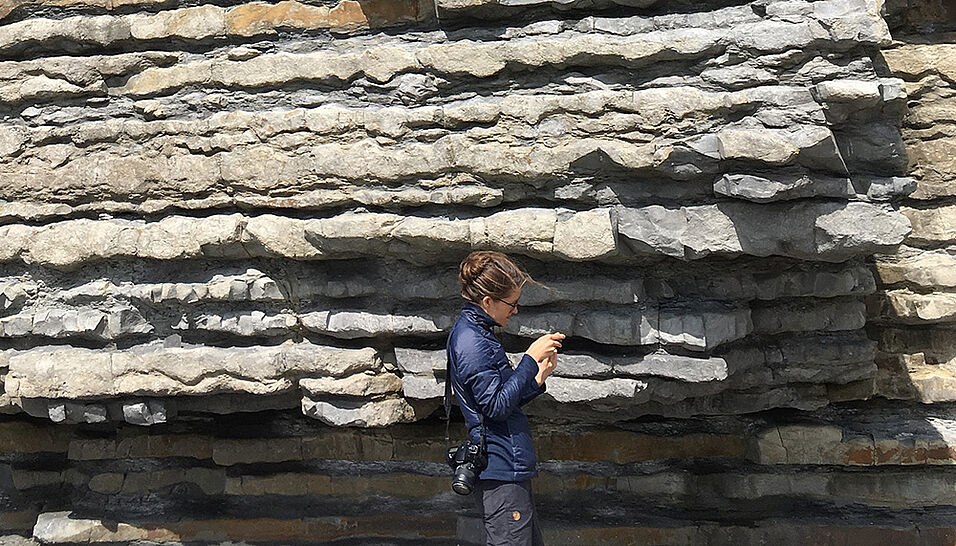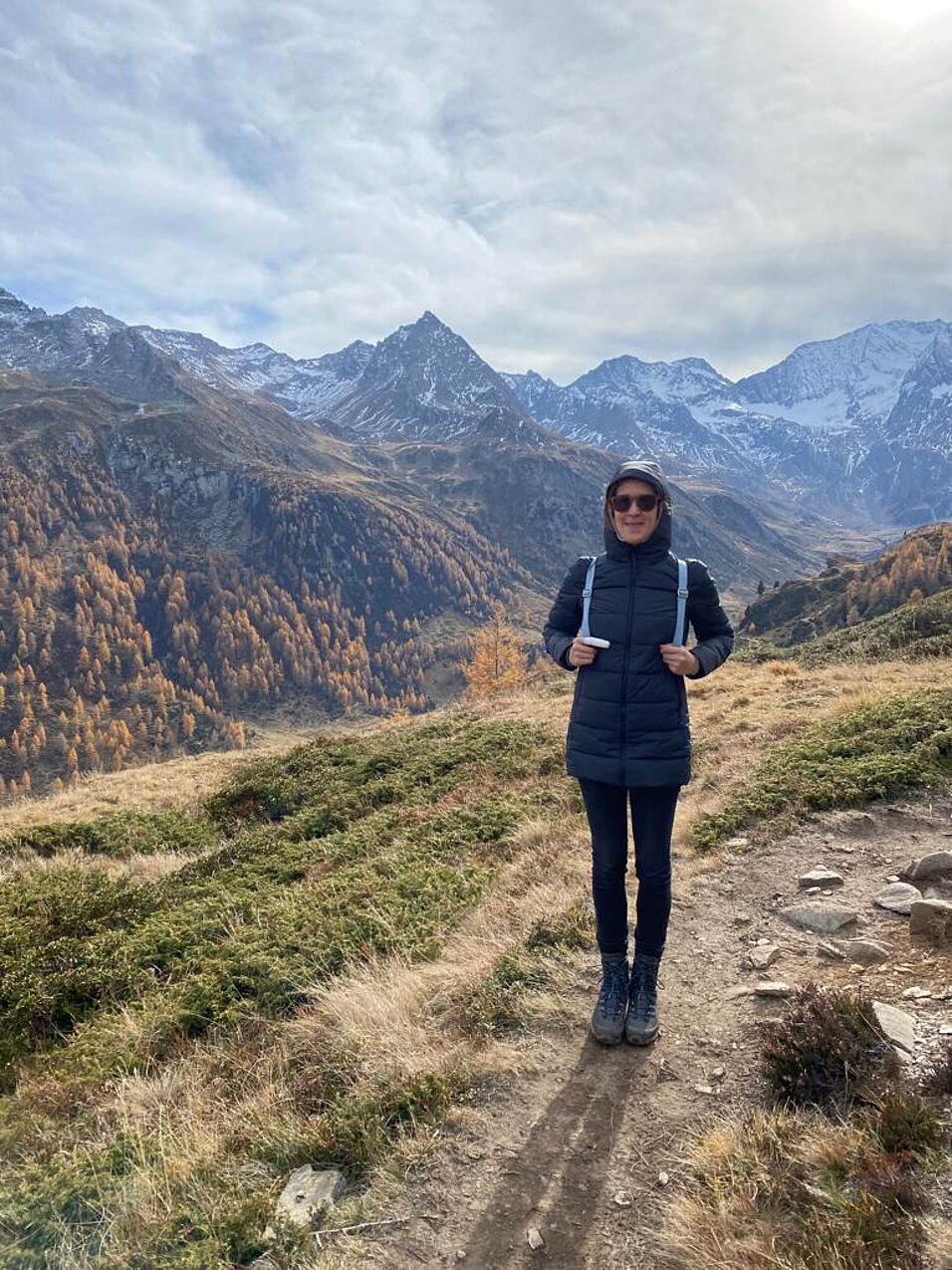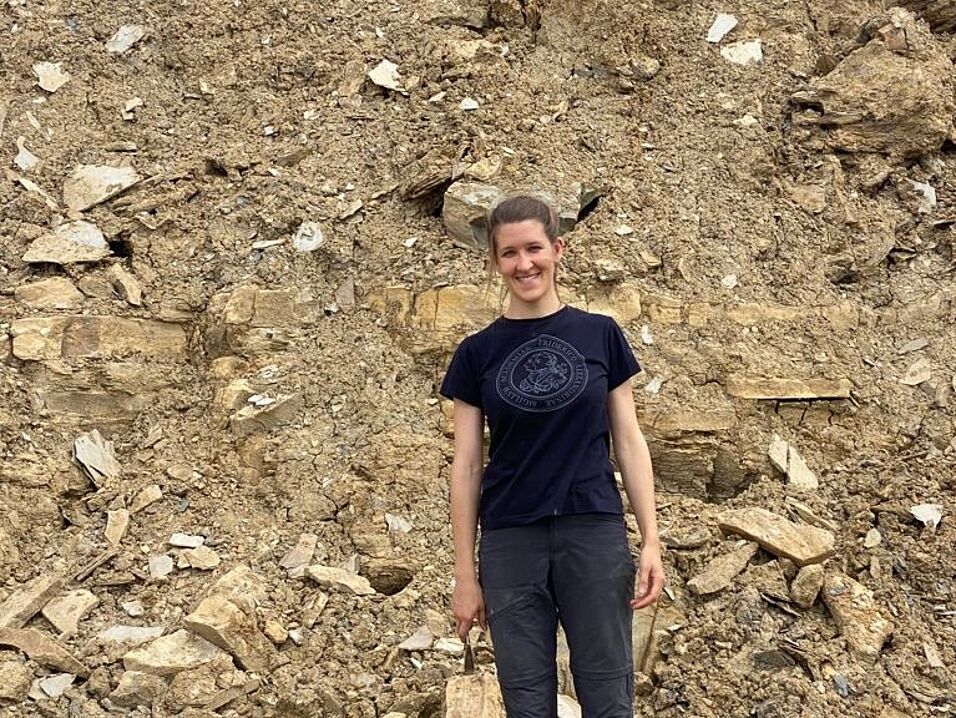What is so fascinating about your research area?
Reconstructing environments from thousands to hundreds of millions of years ago is fascinating itself. It is like a Sherlock Holmes riddle about how Earth’s geological and biological interactions functioned in the past, and what can be learned from it for modern-day’s climate change. My work focuses on biases in the rock record which complicate these reconstructions – what was there originally, what happened in between, and what do we see today? Disentangling the various involved processes and finding methods to improve palaeoenvironmental reconstructions is a very diverse and highly captivating task.
Which central message should your students remember?
The rock record cannot necessarily be directly interpreted. Instead, it has to be translated with caution. I would like them to gain more awareness of how biased the rock record can be and to critically evaluate their future work in this respect.
Why did you decide to do research and teach at our Faculty?
I look very much forward to discussing and developing research with the excellent group around Martin Zuschin. In terms of teaching, I normally teach courses in a more stiff curriculum and am happy to have here the opportunity to develop and teach a course in my most favourite topic.
Which three publications characterise your work?
T. Nohl, M.J., Steinbauer, M., Sinnesael, and E. Jarochowska, (2021): “Detecting initial aragonite and calcite variations in limestone–marl alternations” Sedimentology. https://doi.org/10.1111/sed.12885
T. Nohl, J. Wetterich, N. Fobbe, A. Munnecke (2020): “Lithological dependence of aragonite preservation in monospecific deposits of the Miocene Mainz Basin - implications for the (dia-)genesis of limestone-marl alternations”, Journal of Sedimentary Research, v. 90, https://doi.org/10.2110/jsr.2020.057
T. Nohl, E. Jarochowska, A. Munnecke (2019): “Revealing the genesis of limestones and marls: a taphonomical approach”, Palaios, v. 34, https://doi.org/10.2110/palo.2018.062
Thank you & welcome to our Faculty!
- Theresa Nohl is working as researcher and lecturer at the Geozentrum Nordbayern - Palaeontology, Friedrich-Alexander-University Erlangen-Nuremberg. She investigates processes involved in the (dia-)genesis of carbonate rhythmites, e.g., limestone-marl alternations, as well as their influence on preservation and reconstruction of palaeoenvironmental proxies to improve their usability in further analysis such as cyclostratigraphy. In her work, she combines and develops methods from sedimentology, palaeontology, taphonomy and geochemistry. More about her
- Working group / host professor: Conservation Palaeobiology and Historical Ecology / Martin Zuschin
- Course in the summer term: 280027 VU Taphonomy and Diagenesis of Aragonitic Fossils (2022 S)



